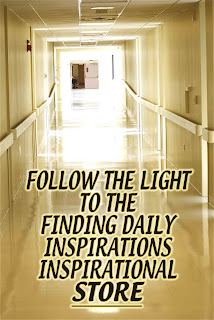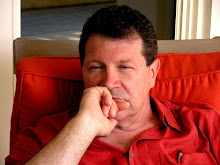
Made a list of all persons we had harmed and became willing to make amends to them all.
(Step Eight from the Twelve Steps of AA)
I have done quite a bit of listening and reflection on this step because I have found its spiritual principles critical to deeper, more wounded areas of my lost selves. I believe that it is important to clarify my experience of the word “spiritual”. I experience spirituality as the level of conscious contact –conscious higher Presence -- I have with my God, then with myself, and finally with others.
As I was journaling today, several experiences and spiritual awakenings appeared.
Simplify
First was the need to break the principle down into simpler pieces and then reconnect them into a more conscious and effective whole.
1. “Make a list”. Write it down in an orderly columned fashion.
2. “Of all persons” – as in Step 4, list every person and relationship important enough to be remembered, and be prepared to remember more.
3. “Of all persons we had harmed” – rate each person on a scale from 1-10 as to how much we “feel” we harmed them – essentially rating our level of guilt when we remember or think of them. These levels are only perceptions and not actual facts. This is not rating how much we “wronged” them because Step One – admitted we were powerless – removes any moral judgment from what we are rating.
4. “Become willing” – “and able” – reach a level of conscious contact with our God where we have the ability to choose addressing our perceptions of having harmed others and change what we can. If we do not have a level of conscious contact that matches our levels of perceptual guilt and shame, dealing with harms will be virtually impossible -- only options and not real choices we can exercise.
5. “To make amends” – we reach a level of conscious contact with our God where we can actually decide and act to change our perceptions of our perceived harm – internally and/or externally.
6. “To them all” – to the extent we can amend or change them all, we will become freed from the flesh eating cancer of our disease of shame and guilt. We will become reborn to our truest and deepest selves.
Symptoms of Our Injuries and Disease
Step 4: Made a searching and fearless moral inventory of ourselves.
Another spiritual awakening was how Step 8 relates to Step 4. Step 4 deals primarily with the symptoms of our disease by remembering the harm or injury that was done to us by others. Step 8 reviews the symptoms of our disease by looking at the advanced stages and effects of our injuries and disease – how we harmed others, resulting in even more harm to ourselves. The focus of each of these steps is at a different level of our illness.
We Are Dealing with Perceptions Not Facts
Still another spiritual awakening is that Step 8 – as well as Step 4 – is really only dealing with perceptions. Our “victims” frequently have very different perceptions of what actually occurred. And perceptions are more powerful than actual facts – what actually occurred may ultimately be of minimal to no importance.
As we begin to practice this principle, we need to realize the role of perception in this process. There is my perception of what happened, and their perception of what happened. “They” and I may not remember, or our brains may deny what actually happened (denial), or our brains may exaggerate or distort the details by attaching the “harm” to other “harms” or separations received from others.
Definition of Harm
An important part of this step, which is also clarifying about Step 4, is the actual experience being referenced with the word “harm”. My experience is that “harm” is any situation or circumstance within a relationship where emotional separation occurred – abandonment, rejection and/or abuse. The details of the event have varied relevance, but the bottom-line, common denominator in every instance was abandonment, rejection, or abuse – whether conscious or unconscious –whether real or only perceived – separation – loss of conscious contact with others, with our selves, and with God -- that is “harm”.
I am working with someone on this step, and he was having considerable trouble identified specific harms he had done to others. As I processed his dilemma, I realized that his problem was that he had really done very few overt harms to others. However, he has had three divorces and other troubled relationships where at least abandonment had occurred. Our brains really do not discriminate between action and thought in this area. If we think and feel “evil” in our “hearts”, even if it is not accompanied by harmful actions, we experience that we have harmed or wronged them by separation – and we have harmed ourselves.
The experience of separation creates a deadly poison which eats away our inner heart’s tissues and leaves us wounded, sick, and dying –even without having taken overt action to hurt someone.
Sin?
What we are talking about here is commonly labeled by religion as “sin”. To him who knows to do good, and does not do it, it is “sin”. Sin is believed to be where we somehow harm our God’s standards or conditions for our actions, thoughts, and feelings, and punishment – from God – is imminent.
In my experience, my God has no rules or conditions. Sin is where we violate ourselves by separating from others, then ourselves, and ultimately from our God. Their love and acceptance is unconditional. We are, in fact, the judge, jury, and executor of our selves.
(Aside: Try replacing the word “sin” with the word “shame”: for example, “for all have been shamed and come short of the glory or Presence of God.”)
Forgiveness
What we are moving toward is “forgiveness” -- not by God -- not even by others -- but forgiveness of and by ourselves. We damn ourselves to our own living hells by our involuntary, uncontrollable perceptions that we are bad, not good enough, not deserving to be loved or cared about – self abandonment and abuse – because we perceived we have wronged others – and others are us, too.
Forgiveness involves reaching a level of conscious contact with our God where we experience Their intimate and unconditional love and acceptance, and we begin to perceive our selves with Their eyes, and not our wounded brains. To God, we are perfect and wonderful. To our injured selves, we are worthless, evil wantabes who will never be good enough, and we will continue to involuntarily harm every person we touch – by withdrawing or withholding our own loving presence.
Forgiveness will never come from thought, knowledge, or understanding. It can only be produced by consistent and increasing conscious experience of our God’s loving and caring Presence. And we have been given each other – the consciously wounded and broken – to be the sacred messengers and carriers of God’s precious Presence.
Hell
Imagine “Hell” –a place within our brains where we are judged by impossible and nonexistent standards, and where we are punished unmercifully by our own brains for the perception that we have harmed others and been harmed. The “just” punishment, according to our diseased brain, is eternal damnation to total isolation, and abandonment, and wretched loneliness. This “place” is my experience of my illness of shame and separation.
Hence the saying, “Religion is for people who afraid of hell – and spirituality is for those who have already been there.”
A Format for Writing Step Eight
I would offer to you a format for doing this step that has been effective for me:
1. First, list every person important enough to have been remembered.
2. Rate each person on a scale from 1-10 as to how much separation you “feel” you did with this person, 1 being low, and 10 being very high. Note another way of looking at this is how much guilt or shame we experience when we think of this person.
3. List any specific actions that you did that could have or did harm the other person: for example, lying, cheating, stealing, verbal and/or physical abuse, and neglect.
4. Whether specific harmful actions occurred or not, how did you separate yourself – withdraw your caring presence -- from them: for example, silence, sarcasm, indifference, ignoring of their needs and feelings, judgmentalism and negative vs affirming statements, and a lack of cooperation and/or empathy and sympathy.
Practice Prior Spiritual Principles
With This Spiritual Principle
Finally, it is critical to practice the prior spiritual principles in this spiritual principle, as well as all our affairs.
1. Step One – we are not bad or evil because we were actually powerless and without the ability to choose or control our attitudes and actions. This step is critical because we have a disease of overresponsiblity – obsession with outcomes -- which judges and punishes us for all of our thoughts, feelings, and actions as if we could have and did deliberately choose our perceptions, reactions, and actions. This is the damning lie at root of all our symptoms and disease.
2. Step Two –we have to be restored to the ability to act and perceive sanely by developing a conscious and intimate relationship with our God. Without this, we are hopeless and helpless – and we do not have to be.
3. Step Three – we take the action to surrender our human controllingness and judgmentalism of ourselves and others over the loving care of our God – within an intimately personal relationship.
I believe and have experienced that when we take the action to list and identify perceived harms, combine this with a steady practice of the first three spiritual principles, we begin to achieve self forgiveness -- instead of living in our own private hells. We begin to live within the fellowship of our loving present spirits – and life becoming a better and place to be.

Daily Inspirations Jewelry and Gifts .
 Daily Inspirations Readings
Daily Inspirations Readings
Daily Inspirational Clothing, Daily Inspiration Music
Photography/graphics by W. Wass


Daily Inspirations Readings


